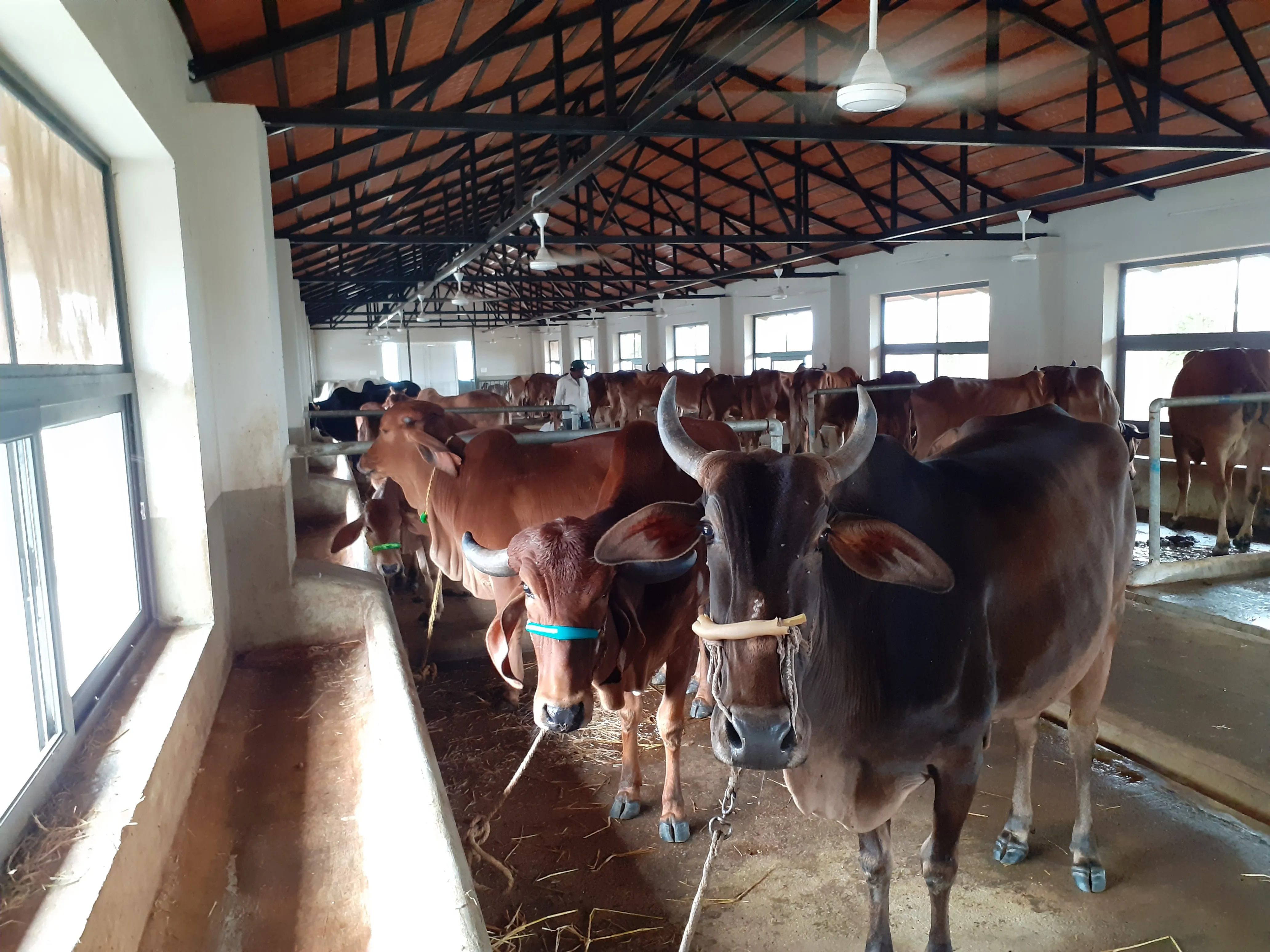 Contact us
Contact usIntent
Community
Studio Organo Concepts
About Us
Subsidaries
Studio Organo
TS RERA No.P02400003403.
TS RERA No.P02400003403.

Amenities in a community or neighbourhood are important parts of the social infrastructure. The conveniences are the little details that not only make our life comfortable & healthy but also help in preserving nature and improving social bonding.
Goshala - A Tradition of Faith
Not so long ago, every locality had a Goshala, that catered fresh natural milk to every household in the vicinity. Desi cows were bred and protected to maintain indigenous breeds and they were the source of not only nutritious organic fresh milk but also their excreta was used for natural pesticides, manure, and Ayurvedic medicinal purposes. The dung was also used as cooking fuel, thermal insulator for home exteriors, and insect repellents.
As time passed and rapid urbanization took its toll, packaged milk became the preferred choice which eventually led to pumping the cows with hormones and unhealthy chemicals to increase milk production. The consequence – growth disorders for the young and serious health hazards for all.
At Organo, we pledged to bring back the healthy traditional practices in food production to ensure overall wellbeing for all. As a part of the endeavour, we have built Goshalas housing desi cows to ensure fresh natural milk for every household in the community. Additionally, the dung is used for biogas, which is a rich source of methane and can be converted to renewable energy as well. In the process, the ripple effect is low-cost farming methods, saving farmers from debt and creating employment for dairy farmers in the vicinity. One cow is known to provide milk for 4,10,440 people during her lifetime, manure for up to 30 acres of land. No wonder, she is called Gomatha!
Organic & Witnessed Farming - A decision for nature
Organic farming is a technique, which involves the cultivation of plants and rearing of animals in natural ways. This process involves the use of biological materials, simply avoiding synthetic substances to maintain, renew soil fertility and ecological balance thereby minimizing pollution and wastage. Also, no other genetically modified organisms are permitted in the field. Organic Farming helps in many ways like building healthy soil, combating erosion and facilitating biodiversity. The produce from organic farming is nutritious and improves well-being.
Solar conservation - Go solar, save energy, help nature
Traditionally, the world’s electrical needs have been fulfilled by fossil fuels like oil, natural gas, and coal. However, these energy sources have many negative impacts. They play a bigger role in global warming and acid rain pollution, which negatively impacts many animals, plants, and humans in the environment. The best alternative is solar energy, which is a renewable resource. It provides an unlimited, steady supply through time. Solar energy is also a green source of energy because it does not emit pollutants during the energy production process. There are solar thermal collectors that harness heat by absorbing sunrays. By producing energy, we reduce our dependence on the state grid.
Bio-pool - Give yourself a new life
Like the bio-pool in Organo Naandi, the bio pool at Rurban Nest will be a home for various aquatic plants. It will be a destination for various family events, children and adult retreats across the year. Additionally, bio-pool attracts various spectres of bird types that visit and explore aquatic life such as snails, baby frogs, fish, and serves the purpose of a birdbath. The water does not have chlorine and does not dry out the skin after a long swim.
